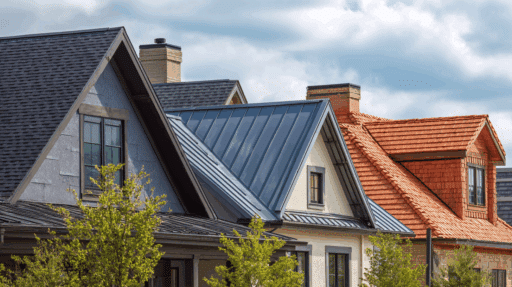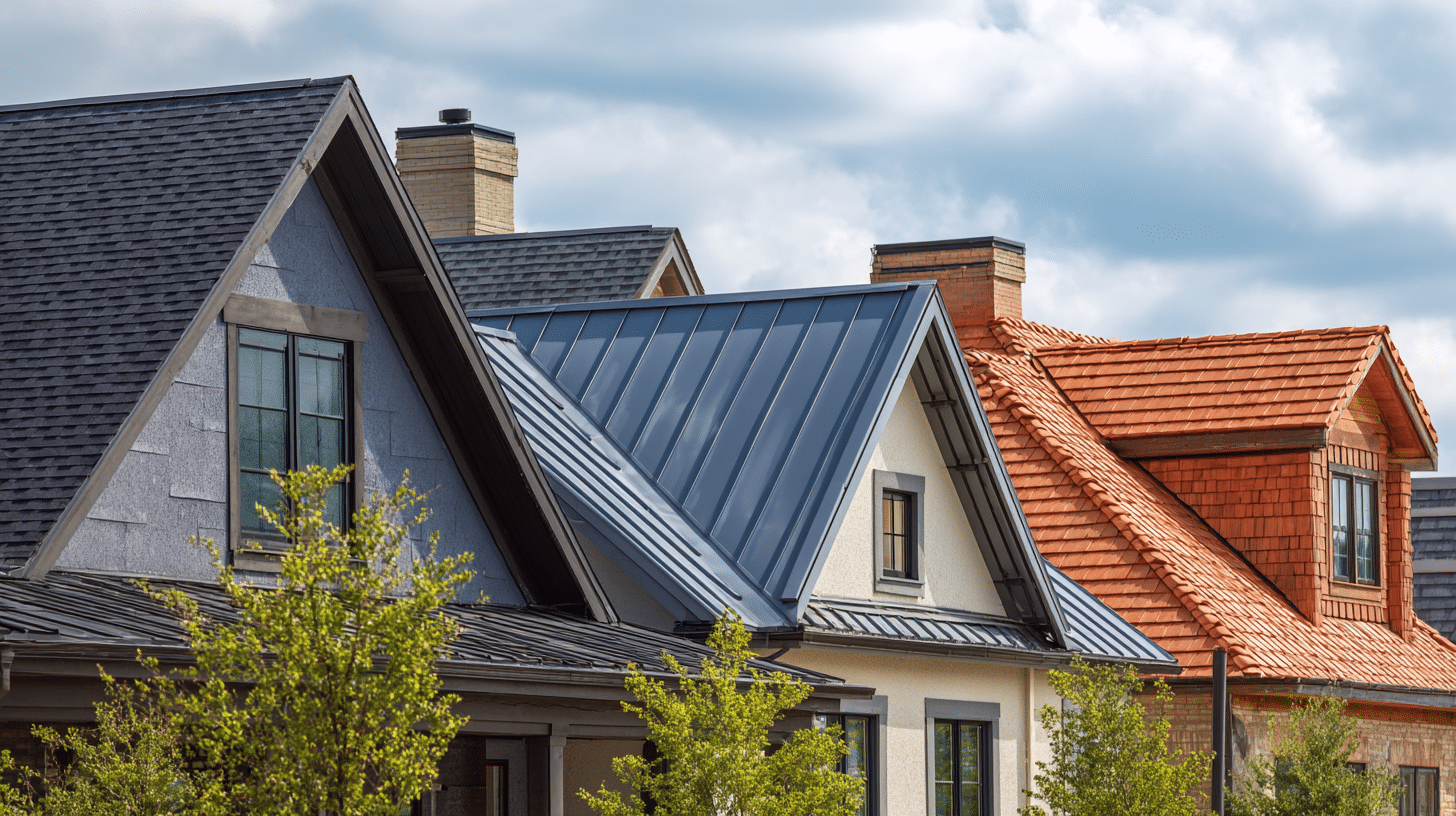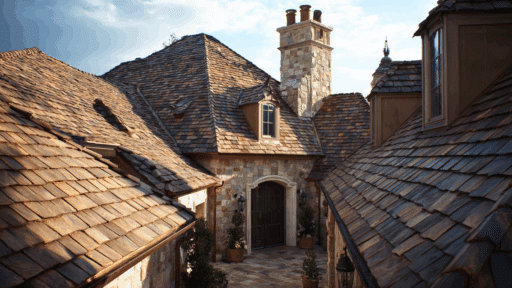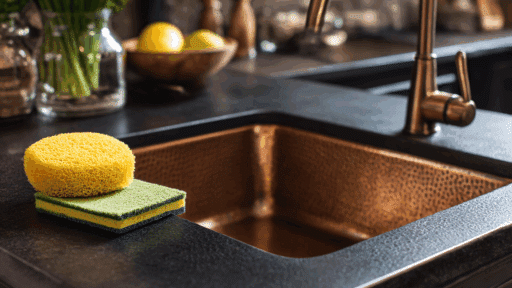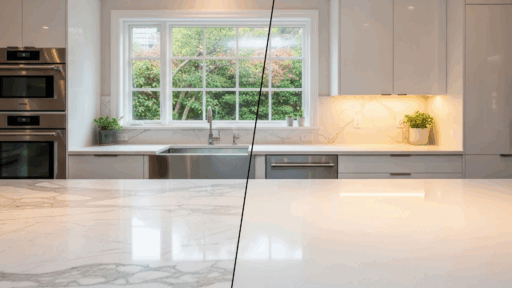Planning a roof replacement or repair can feel overwhelming, especially when trying to understand the cost of roofing labor per square foot.
Roofing labor expenses comprise a significant portion of your total project budget. These costs vary based on your roof size, the materials you select, and the complexity of your roof design.
Getting a clear picture of these roofing costs helps you plan more effectively and avoid unexpected expenses.
This guide breaks down everything you need to know about roofing labor cost per square foot. You’ll understand pricing, comparison of different materials, and find ways to save money on your roofing project.
Understanding Roofing Labor Cost Per Square Foot
Roofing labor costs cover the wages you pay workers to install or fix your roof. Most contractors price their work either per square foot or per “square,” which equals 100 square feet.
The current labor rates for 2025 are:
- $2.00–$3.50 per square foot for shingle roofing
- $4.00–$8.00 per square foot for metal roofing
- $6.00–$10.00 per square foot for premium materials like tile, clay, and slate
Your location, roof size, and material choice all affect these prices. Regional differences can create significant cost variations across different states and cities.
Fun fact: The term “square” comes from the roofing industry’s need for more straightforward calculations. It’s much easier to say “20 squares” than “2,000 square feet” when discussing large commercial projects.
Factors That Impact Your Roofing Costs
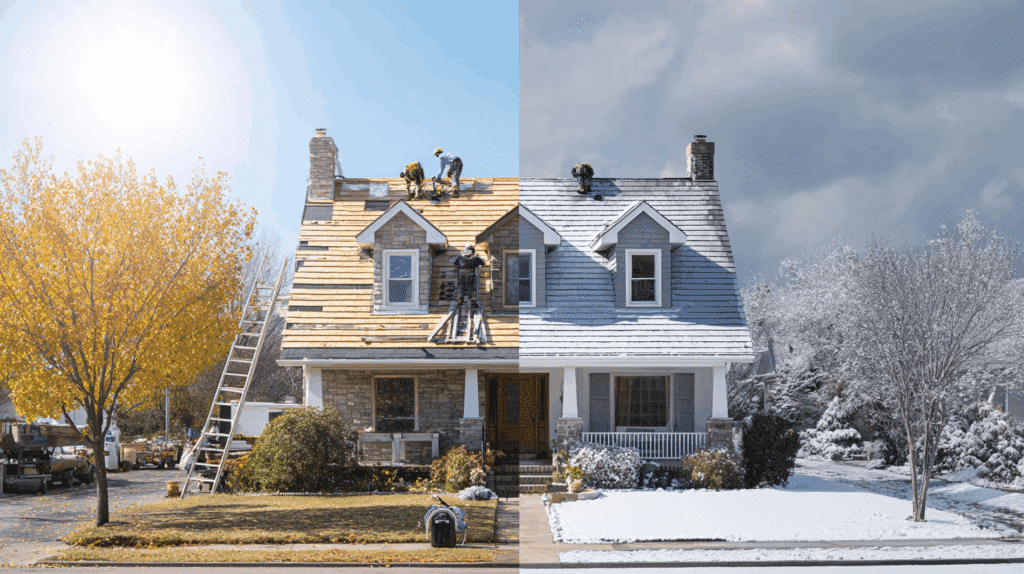
Several key factors determine the cost of roofing labor. Understanding these helps you budget more accurately for your project.
1. Project Size Matters
Bigger roofs often cost less per square foot because of bulk pricing. Here’s what you might expect:
- A 1,000 sq ft roof runs $2,000 to $3,500 for labor
- A 3,500 sq ft roof costs $7,000 to $12,300 for labor (materials not included)
Small roofs under 1,000 square feet might cost more per square foot. Contractors have minimum charges to cover their equipment and setup costs.
2. Material Type Changes Everything
Your material choice has the most significant impact on labor costs. Simple materials take less time and skill to install.
Labor costs by material:
- Asphalt shingles: $2.00–$3.50 per square foot
- Metal roofing: $4.00–$8.00 per square foot
- Tile/clay/slate: Up to $10.00 per square foot
Premium materials, such as slate, require specialized tools and experienced workers. These materials are also heavier, which means more prep work for your roof structure.
3. Location and Accessibility
Your home’s location affects labor costs in several ways. Urban areas typically charge 20-30% more than rural locations due to higher living costs, stricter building codes, and increased business expenses.
Houses tucked behind other buildings, near power lines, or with limited truck access create logistical challenges. Steep driveways, narrow streets, or homes without nearby material staging areas can add 10-15% to your labor costs.
Workers might need to hand-carry materials longer distances or use smaller, less efficient equipment in tight spaces.
| Material | Labor Cost/Sq Ft | Labor Cost/Sq (100 Sq Ft) |
|---|---|---|
| Asphalt Shingles | $2–$3.50 | $200–$350 |
| Metal Roofing | $4–$8 | $400–$800 |
| Tile, Clay, Slate | $6–$10+ | $600–$1,000+ |
These prices can vary by 15-25% depending on your specific region and local labor market conditions. Always get local quotes to understand your area’s actual pricing.
Fun Fact: Most experienced roofers can tell the difference between quality and cheap materials just by the sound they make when walking on them. Good materials feel solid underfoot, while cheap ones feel bouncy or hollow.
Extra Costs You Should Know About
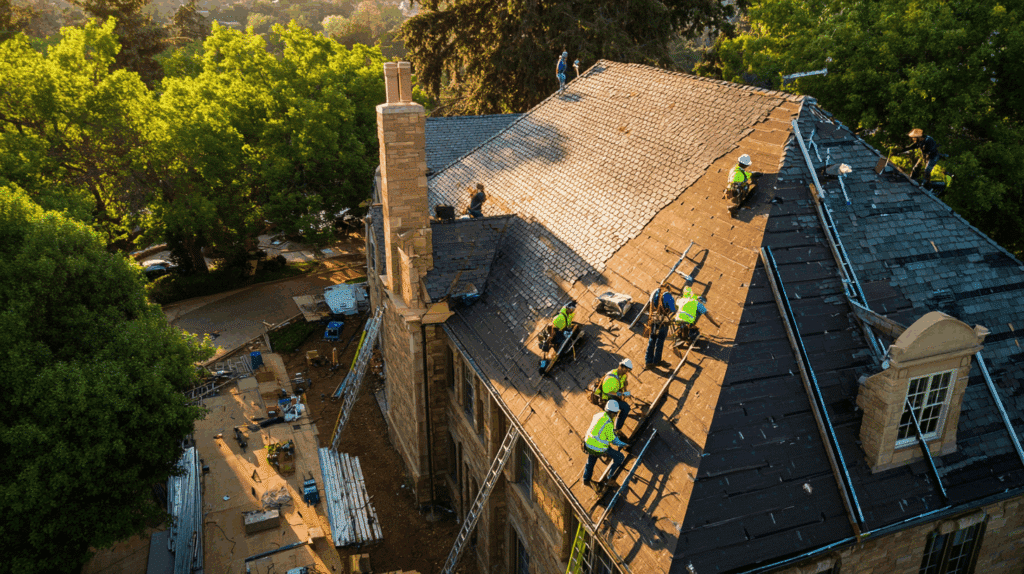
Beyond basic installation, additional work may be required and could be included in your bill. These costs can come as a surprise to homeowners who don’t plan for them.
1. Common Add-On Services
Most roofing projects involve more than just laying new materials. These services are necessary for a complete installation but aren’t always included in initial estimates.
- Tear-off and disposal of old roofing: $1–$2 per square foot
- Clean-up and debris removal
- Installing flashing, chimneys, or ventilation
- Steep roofs (over 6:12 pitch) need extra safety measures and time
The tear-off process can take a full day on larger homes. Always ask if your contractor includes complete clean-up in their base price, as some charge extra for debris removal.
2. Structural Work That Adds Up
Sometimes your roof needs more than just new materials. Damaged decking replacement costs $2 to $5 per square foot.
Rotted rafters or trusses can add thousands to your project. Most contractors find these issues only after removing old roofing materials.
Water damage from old leaks often creates hidden problems. Ice dam damage in colder climates frequently requires decking replacement along roof edges.
3. Permit and Inspection Fees
Most areas require building permits for roof replacement. Permit costs range from $100 to $500, depending on your location. Don’t forget about required inspections, which might add $100–$200 to your total cost.
The permit process typically takes 1-3 business days to complete. Inspections usually happen after tear-off, during installation, and upon completion.
Your contractor should handle the permit application; however, ensure this is clearly outlined in your contract.
4. Weather Delays and Protection
Rain or snow can stop roofing work completely. Many contractors charge for tarping your roof if bad weather hits during the project. These protection costs typically range from $200 to $500, depending on the roof size.
Extended weather delays can stretch projects from days into weeks. Emergency tarping services outside regular hours often cost significantly more than planned protection.
How to Calculate Your Roofing Labor Cost per Square Foot
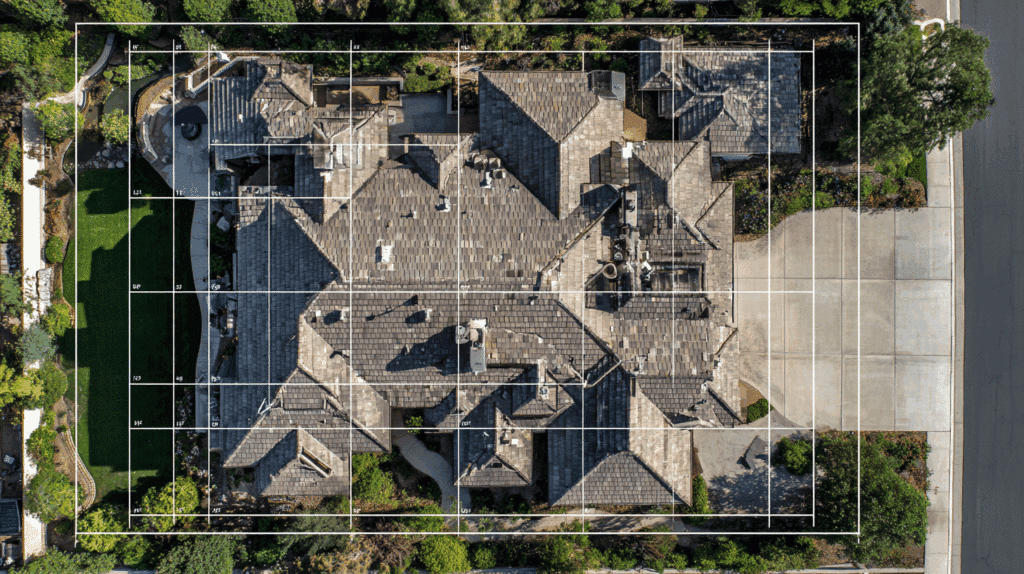
Follow these simple steps to estimate your roofing labor expenses before getting quotes from contractors.
Getting accurate measurements is the first step to understanding your costs. Most homeowners underestimate their roof size by 10-20%.
Complex roofs with multiple angles, dormers, or chimneys need extra calculation time.
| Step | Action | Description |
|---|---|---|
| 1 | Calculate the roof area | Measure length × width × pitch factor to determine total square footage |
| 2 | Multiply by labor cost | Apply the average labor cost per square foot for your chosen roofing material |
| 3 | Use online calculators | Utilize roofing cost calculators for more precise estimates based on your specific details |
| 4 | Get multiple quotes | Obtain at least 3 quotes from different contractors to compare pricing and services. |
This provides a baseline for comparing contractor bids and identifying any unusually high or low estimates. Remember that the lowest bid isn’t always the best choice.
Ways to Reduce Your Roofing Costs
Thoughtful planning can help you save money on roofing labor without sacrificing quality. These strategies work for most homeowners.
- Schedule work during slower seasons for better rates
- Pick easier-to-install materials like asphalt shingles
- Bundle services with one contractor for installation and future maintenance
Timing matters a lot. Fall and winter often bring lower labor costs because fewer people schedule roofing work during this time.
Pro Tip: Tuesday through Thursday are often the cheapest days to start roofing work. Contractors charge premium rates for weekend and Monday starts because homeowners prefer these times.
Picking the Right Roofing Material
Your material choice affects both upfront costs and long-term value. Each option has pros and cons to consider.
Asphalt Shingles offer the most affordable option with easy installation.
Metal Roofing costs more upfront but lasts much longer. Tile, Clay, or Slate provide the longest lifespan but require the highest labor investment.
| Material | Upfront Cost | Labor Difficulty | Lifespan | Ease of Repair |
|---|---|---|---|---|
| Asphalt Shingles | Low | Easy | 15–25 years | Easy |
| Metal Roofing | Medium-High | Moderate | 40–70 years | Moderate |
| Tile/Clay/Slate | High | Complex | 50+ years | Hard |
Fun Fact: A typical roof tear-off creates 1-5 tons of waste material. That’s why disposal costs can add up quickly – you’re essentially paying to haul away the weight of a small car!
Finding the Right Roofing Contractor
Choosing a good contractor matters just as much as picking the right materials. The right team can save you money and headaches.
When hiring a roofing contractor:
- Check reviews and ask for references from recent customers
- Get written estimates that list what’s included
- Make sure they have proper licenses and insurance
Conclusive Thoughts
Thoughtful planning around roofing labor cost per square foot can save you thousands on your next project.
Remember that the cheapest roofing labor isn’t always the best value – focus on finding experienced contractors who offer fair pricing for quality work.
By understanding the factors that influence pricing, you can plan more effectively and avoid unexpected costs. Keep in mind that material choice has the most significant impact on roofing costs.
Getting multiple quotes helps you find fair pricing and quality work. Don’t rush this decision – your roof protects your most significant investment.
Ready to start your roofing project? Get three quotes today and compare your options.

